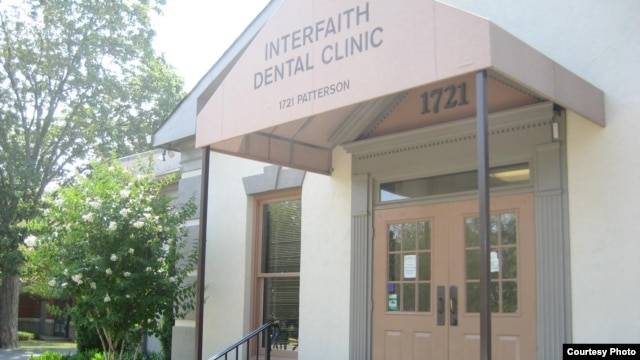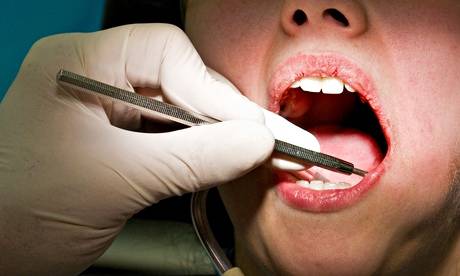Navigation
Install the app
How to install the app on iOS
Follow along with the video below to see how to install our site as a web app on your home screen.

Note: This feature currently requires accessing the site using the built-in Safari browser.
More options
You are using an out of date browser. It may not display this or other websites correctly.
You should upgrade or use an alternative browser.
You should upgrade or use an alternative browser.
FDA to reexamine use of mercury in dental fillings
- Thread starter JBeukema
- Start date
Granny wants to know if people can't afford dental insurance - how dey s'posed to afford Obamacare?...

More Americans Turn to ER for Dental Care
September 04, 2013 NASHVILLE, TENNESSEE Four-year-old Emily Bratcher is having a cavity filled. And as uncomfortable as getting a tooth drilled might be, shes lucky to be sitting in Rhonda Switzer's dentist chair at all.

More Americans Turn to ER for Dental Care
September 04, 2013 NASHVILLE, TENNESSEE Four-year-old Emily Bratcher is having a cavity filled. And as uncomfortable as getting a tooth drilled might be, shes lucky to be sitting in Rhonda Switzer's dentist chair at all.
Last year, the U.S. Centers for Disease Control and Prevention ranked Tennessee 47th among the 50 states for dental care. The CDC says the number of Tennessee residents visiting a dentist routinely is on the decline. Working but poor families like Emilys have the hardest time accessing dental care. They make too much money to qualify for government aid, but too little to pay for the care at market rates. So Emily and her sister are being treated at the Interfaith Dental Clinic, a medical charity operated by a faith-based ministry. It can be especially important for people struggling to find or keep a job to have good oral health. Unfortunately, our society looks at peoples weight, their dialect, and their teeth in making decisions like, is that person educated or employable, Executive Director Rhonda Switzer said.
And just as unfortunately, the problem is only getting worse. The Pew Research Center released a study earlier this year that indicates the U.S. has a severe shortage of dentists. More than half of those currently in practice are nearing retirement. Even more alarming, a growing number of Americans are showing up at hospital emergency rooms looking for dental care. This is the 'canary in the coal mine.' This is the symptom that tells you we have a broken dental delivery system, said Shelly Gehshan, director of the Pew Childrens Dental Campaign. We dont have enough dentists. We dont have enough clinics. We dont have enough dental insurance. We dont have enough financing in the system. We dont have enough prevention. Its a neglected area.

The Interfaith Dental Clinic, a medical charity outside Nashville, Tennessee, offers dental care to those who can't afford dental insurance.
Gehshan says the Affordable Care Act, President Barack Obamas signature healthcare reform initiative, will, in theory, extend dental coverage to every child in the nation, but she says the poorest of those children may still have trouble accessing care. They need help with transportation, or translation, or child care, and most dental care is provided by private dentists and theyre not set up to provide those extra services, she said. Gehshan says non-profit clinics like Switzers facility are better equipped to address those needs, but charitable operations are rare. She says one possible solution some states are exploring is introducing what she calls mid-level dental practitioners. Currently, only fully accredited doctors are allowed to practice dentistry in the U.S. In other countries there are other more different types of providers. So they have dental hygienists with extra training, or dental therapists, or people with both types of training," Gehshan said.
Little Emily Bratchers mother, Deborah, is not really interested in the politics of health care. She just wants her daughters to see a dentist regularly, and shes a little angry it is not happening now. Its just upsetting, because I dont want my children to go through life having bad teeth, because I cant afford $3,000 for dental work every other month or something, Deborah Bratcher said. The Pew Centers Shelly Gehshan notes that the Affordable Care Act does not mandate dental coverage for adults, meaning millions of Americans will continue to struggle to maintain good oral health.
More Americans Turn to ER for Dental Care
Takin' the pain outta goin' to the dentist...

No more fillings as dentists reveal new tooth decay treatment
Monday 16 June 2014 ~ Scientists in London develop pain-free filling that allows teeth to repair themselves without drilling or injections

No more fillings as dentists reveal new tooth decay treatment
Monday 16 June 2014 ~ Scientists in London develop pain-free filling that allows teeth to repair themselves without drilling or injections
Scientists have developed a new pain-free filling that allows cavities to be repaired without drilling or injections. The tooth-rebuilding technique developed at King's College London does away with fillings and instead encourages teeth to repair themselves. Tooth decay is normally removed by drilling, after which the cavity is filled with a material such as amalgam or composite resin. The new treatment, called Electrically Accelerated and Enhanced Remineralisation (EAER), accelerates the natural movement of calcium and phosphate minerals into the damaged tooth. A two-step process first prepares the damaged area of enamel, then uses a tiny electric current to push minerals into the repair site. It could be available within three years.
Professor Nigel Pitts, from King's College London's Dental Institute, said: "The way we treat teeth today is not ideal. When we repair a tooth by putting in a filling, that tooth enters a cycle of drilling and re-filling as, ultimately, each 'repair' fails. "Not only is our device kinder to the patient and better for their teeth, but it's expected to be at least as cost-effective as current dental treatments. Along with fighting tooth decay, our device can also be used to whiten teeth."

The new treatment, Electrically Accelerated and Enhanced Remineralisation (EAER), could be available within three years.
A spinout company, Reminova, has been set up to commercialise the research. Based in Perth, Scotland, it is in the process of seeking private investment to develop EAER. The company is the first to emerge from the King's College London Dental Innovation and Translation Centre, which was set up in January to take novel technologies and turn them into new products and practices.
King's College is a participant in MedCity, a project launched by the London mayor, Boris Johnson, to promote entrepreneurship in the London-Oxford-Cambridge life sciences "golden triangle". The chairman of MedCity, Kit Malthouse, said: "It's brilliant to see the really creative research taking place at King's making its way out of the lab so quickly and being turned into a new device that has the potential to make a real difference to the dental health and patient experience of people with tooth decay."
No more fillings as dentists reveal new tooth decay treatment | Society | theguardian.com
Similar threads
- Replies
- 249
- Views
- 2K
- Replies
- 97
- Views
- 1K
Latest Discussions
- Replies
- 58
- Views
- 319
- Replies
- 240
- Views
- 865
Forum List
-
-
-
-
-
Political Satire 8037
-
-
-
-
-
-
-
-
-
-
-
-
-
-
-
-
-
-
-
ObamaCare 781
-
-
-
-
-
-
-
-
-
-
-
Member Usernotes 468
-
-
-
-
-
-
-
-
-
-
